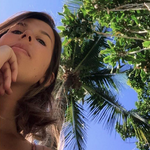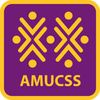Erica Hargreave writes about her Ambassadorship in a series of articles
Here are some highlights from Erica's interim report series Exploring Different Avenues of Outreach and Education
Part 1

Outreach and Education with Tipping Galleries and Parties - Part 1 of my Ambassadorship Interim Report
Erica Hargreave ・ Aug 2 '23
Hello Everyone,
This is a long overdue checkin on what I have been working on with my Ambassadorship.
My Original Goals
As some of you might remember when I set out, my goals were to:
experiment with tipping galleries and parties as a way of engaging people around the Web Monetization Standard, as well as to do outreach and education around the Web Monetization Standard;
do outreach and education on Interledger and the Web Monetization Standard with Indigenous Communities and with Disability Communities; and
do outreach and education on the Web Monetization Standard with communities of digital creatives, media, and creators of open educational materials, who can easily Web Monetize their pre-existing digital assets, and make this a part of their practice with their future digital assets.
As a part of this I was going to:
host tipping galleries and parties, both to do outreach and education around the Web Monetization Standard and to celebrate and connect our community around our current Web Monetized works and platforms;
work with some young people to experiment with and create tutorials on the different creative platforms enabled for Web Monetization; and
edit and reshare a condensed version of the live, studio audience broadcast recording of the 'Web Monetized at MozFest' Podcast that we recorded at MozFest 2022.
Part 2

Building Educational Assets, and Troubleshooting Pathways to Share Those Assets - Part 2 of my Ambassadorship Interim Report
Erica Hargreave ・ Aug 9 '23
In getting set to share some of the educational resources that I intended on creating and / or editing as a part of this Ambassadorship (ie.tutorials on the different creative platforms enabled for Web Monetization and an edited, condensed version of the live, studio audience broadcast recording of the 'Web Monetized at MozFest' Podcast that we recorded at MozFest 2022), it was decided that these would be shared from Interledger itself (as opposed to StoryToGo). While I was happy with this, it posed a few new challenges, as the Interledger Foundation was not properly set up on YouTube or with a podcasting client with Web Monetization enabled.
YouTube
As I had Bjorn building the first of the video tutorials of Web Monetization enabled content creation platforms on WIPS.art, I addressed YouTube first. There was an old Interledger Protocol YouTube Channel,but no one had access to it and the temporary YouTube channel had some unexpected issues, due to some changes on YouTube that limited the ability for multi-users to effectively manage the account. The latter was an issue, as it limited full management to one person who did not have the time to take on that task, and posed an issue should that person ever decide to move on to something else.
With some patience from @chrislarry, @laka, and @erikad , we found and set up a solution that would allow for a YouTube account to be set up from the Interledger Foundation with multiple managers with the privileges to effectively build and manage the channel.
Part 3

Outreach and Community Building - Part 3 of my Ambassadorship Interim Report
Erica Hargreave ・ Aug 12 '23
As in many creative communities, one of the things our community often struggles with is the outreach and community building side of their projects. So much focus goes into the build, that by the time it’s done, they are either out of funds, energy, time, or at a loss on where to start with doing outreach and community building around what they’ve created.
The reality is that we need both the build and outreach / community building around that build to be successful in reaching broader communities with everything that we’ve been creating in the Interledger ecosystem. We all need to be a part of that outreach and community building, as we are all connected to different communities that trust us.
The Field of Dreams notion of “build it and they will come” is an illusion. Rather it should be “build it, go out and find your desired niche community, engage that community, and then they will come.”
Jeremiah Lee reports on Web Monetization in the Fediverse

Web Monetization in the Fediverse — ILF Grant Progress Report #1
Jeremiah Lee ・ Aug 15 '23
Jeremiah reports
Overview
In April 2023, I began working with the Interledger Foundation as a technical ambassador to advance Web Monetization in Mastodon and other applications using ActivityPub. ActivityPub is a W3C standard that adds a social layer to the Web platform. It enables any website or app to have social networking functionality that can interoperate with other websites and apps. Instead of everyone having to join one social network, people can now pick a social network provider like they can pick an email provider. My project’s goal is to adapt Web Monetization to work within federated social networks with Mastodon being the reference implementation.
Project Update
Building a fediverse home for the Interledger Foundation
My first task was to setup a Mastodon instance for the Interledger Foundation. This required more effort than I anticipated. The Mastodon project did not have an automated way to operate the server application and its required dependencies with the security and reliability expected of commercial services. I created a Terraform project to provision the cloud infrastructure necessary to run a Mastodon instance and deploy the Mastodon software on Google Cloud Platform. This code is now open sourced and anyone can use it to easily deploy their own Mastodon instance onto Google Cloud Platform in under 30 minutes! I also submitted multiple fixes and bug reports to the Mastodon project and to Google Cloud Platform’s Terraform provider.
Once the technical part was ready, I worked with the foundation to establish community guidelines, a privacy policy, and moderation plan to support inviting the general public to join its Mastodon server. I documented Mastodon-specific norms for brands and worked with @julaireh to start posting all of the foundation’s great social media posts on Mastodon too. We then opened Interledger.social to the world. I hosted 3 office hour sessions to help people learn about Mastodon, federated social networks (aka “the fediverse”), and get their accounts setup.
ILF Financial Services Grantee EZA shares Final Report
Rehema for project EZA fka Eneza reports..
Project Update
The name of our project was rebranded from ENEZA to EZA. You can catch up on our previous report here
This last phase of the project has been exciting in a myriad of ways, including the breadth of experience we amassed managing the numerous challenges we faced. Regulation still remains a teething area as there have been some new developments in the local financial sector, following recent legislation which will require all financial and digital entities to make several adjustments.
We have refined our approach towards attaining our greater vision of empowering individuals and small businesses in Kenya to achieve greater financial inclusion and access to credit. EZA will now interact directly with SACCOs and MFIs for a greater reach towards impacting our targeted last mile (women, youth, and unbanked, etc.).
Progress on objectives
Key activities
A. We have completed the research phase and business modeling exercise.
B. Design aspects
We have reworked the design aspects since our last update, informed by our data analysis and stakeholder consultations. The major aspects have evolved around risk and collateralization, user interaction and regulation.
C. Regulation
The new Finance Act, 2023, which was passed in July comprises new taxation obligations that will impact our target clients. For instance, the new Digital Asset Tax, a first of its kind, will be applicable at a rate of 3% to income derived from the transfer or exchange of digital assets, in addition to other existing tax obligations. This will potentially have some implications on our business model but we've devised means of mitigating it.
The Grantee Report
Bowie State University is engaging its students in open protocols by expanding its program to include coursework, micro internships, supporting resources, mentorship, community engagement, and fostering collaboration.
To learn more about this initiative, read BSU’s interim report here.
ILF Financial Services Grantee Kult shares what it was like working with Bowie State students
Helena writes...
Hi Interledger community! I'm Helena, Kult’s co-founder :)
For over a month I have been working directly with 3 students from Bowie State University (Felicia, Jakerya and Anthony) for our summer micro-internship. Now I want to share with you some of our key learnings and insights.
Context
It has been a huge pleasure to conduct weekly sessions where we discussed the following topics:
how to build, foster and engage an online community around common interests
product management & innovation tools
how to encourage users in an online community to support each other’s work financially, through an Interledger-based digital wallet that allows peer-to-peer payments in the form of (i) recurring donations, (ii) one-time tipping and (iii) access to exclusive/premium content
product benchmarking on other platforms that explore similar peer-to-peer payment methods. Two strong examples that came up were Twitch (twitch.tv) and Fable (fable.co), not only for their visual interfaces and usability, but the language style used to communicate and encourage the community to support each other.
Twitch is the popular live-streaming social platform, where you can support the streamers with BITS. You can be a SUB (subscriber), a GIVER or a CHEERER. Twitch has a diversified business model, with varied revenue streams.
Process
We created a Google Drive folder to gather different references and build our case. We also created a Slack channel for group communication. During our 4 weekly sessions, that happened every Thursday, I passed on Kult’s vision as a platform and as part of a larger community which is Interledger, and we brainstormed together strategies in the three main pillars of product innovation – design, business and technology – focusing on the product (app), while identifying marketing strategies as the bridge to guarantee the intersection between these areas.
These are some of the frameworks I presented to them which I learned from direct experience and also innovation courses I participated. There is one specifically that I would even like to recommend which brought me a lot of insight – it’s called Business Design for Sustainable Growth and Innovation, from the Service Design College.
Also from Kult
Patrick Rahy shares some thoughts on PIX
Hello everyone! I'm sharing an interesting paper about PIX and its lessons on financial inclusion. The document the author shared with the post also demonstrates some of the infrastructure, payment flows, and other aspects of such an amazing technology.
PIX is an open payment method created by the Brazilian government that allows people to transfer any amount from 0,01 BRL between each other instantly, without fees. Brazilians moved 11 trillions BRL in 2022, saving billions in bank fees, which makes PIX the biggest payment revolution ever. PIX gives power to the people, by offering liquidity without charges.
I believe there are many learnings we could take from this experience, even though PIX only has 2 years old. As an open-source technology, PIX also allows anyone to create different solutions with it, like digital wallets integrated to businesses. In many ways, PIX can lead the way to a cross-border payment method that guarantees financial inclusion worldwide.
Click here to see the post and document attached












Top comments (1)
Happy Friday! So much activity! We're going to need a weekly podcast soon to keep track of everything...